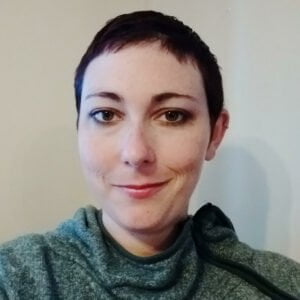
Worldwide, 35% of women have been the victim of either physical or sexual violence at some point in their life, most of this coming from an intimate partner.
Within Ontario, more than 6% of women who have been or are currently in a serious relationship report experiencing domestic abuse. While this is far better than the global average, once we take into consideration that less than one-third of female domestic abuse victims report their experience to police, the gap closes significantly.
We’d all like to think that it doesn’t happen in our neighbourhoods or our communities, but the truth is that there is a very good chance that at least one woman you know has or is currently experiencing domestic violence. Fortunately, there are some excellent non-profit groups that exist solely to put an end to violence against woman.
The Canadian Jewish community can turn to Act to End Violence Against Women (page does not exist) (ACT), an organization inspired by “the Jewish values of Tikun Olam, repairing the world; tzedakah, charity; and chesed, acts of loving kindness,” and whose mission is to “inform, support and empower women and children to live their lives free from violence. We advocate to endviolence against women.”
In an effort to raise awareness of domestic violence within the Jewish community, the organization is hosting a four-night-long conversation (page does not exist) in different corners of Toronto from Monday November 14 to Thursday November 17.
Each evening will follow the same format. According to Penny Krowitz, ACT’s Executive Director, “First the rabbi will discuss what the Torah and our Sages say about relationships and about violence. The second speaker will be a social worker or therapist and will talk about what is domestic violence, its impact and why treatment is so important. This will include advice on what a bystander can or can’t do. And the third person is someone who is a survivor of abuse and will tell their own intimate personal story.”
Following the talks, there will be an open question and answer period. Those who have a personal question, or something they’re embarrassed to ask will have the opportunity to submit theirs anonymously. This approach can help anyone looking for help or trying to escape a violent situation ask their question without fear of reprisal or perceived judgment.
Though the topics are the same, the four evenings are being held in different locations and with different speakers. ACT selected four different congregations from different areas of the city to make the event as accessible as possible for all members of the community. The hope was that no one would be prevented from going because of distance.
Accessibility was also a major factor in the decision to hold the event over four nights. Krowitz explained that this was done in part to “emphasize the importance of this conversation,” but also because “we felt that having it four nights in a row allowed somebody who, for example, if you’re busy Monday night you can come Tuesday night, or if you’re interested in a couple of the speakers, you can come to more than one event. Even though the topics are the same, everybody has a little different spin on it, a little different bit of information to offer.”
Conversation is the most important first step to ending such a taboo problem as domestic violence. Such low rates of reporting come from an unwillingness to talk about the issue, so events like this are vital to opening the dialogue and making women feel more comfortable confronting their experiences head-on. All the members of ACT deserve appreciation and recognition for organizing this event, and for working every day to create a safer world for women and children.
Those interested in participating in the conversation can go to one or all of the evenings:


